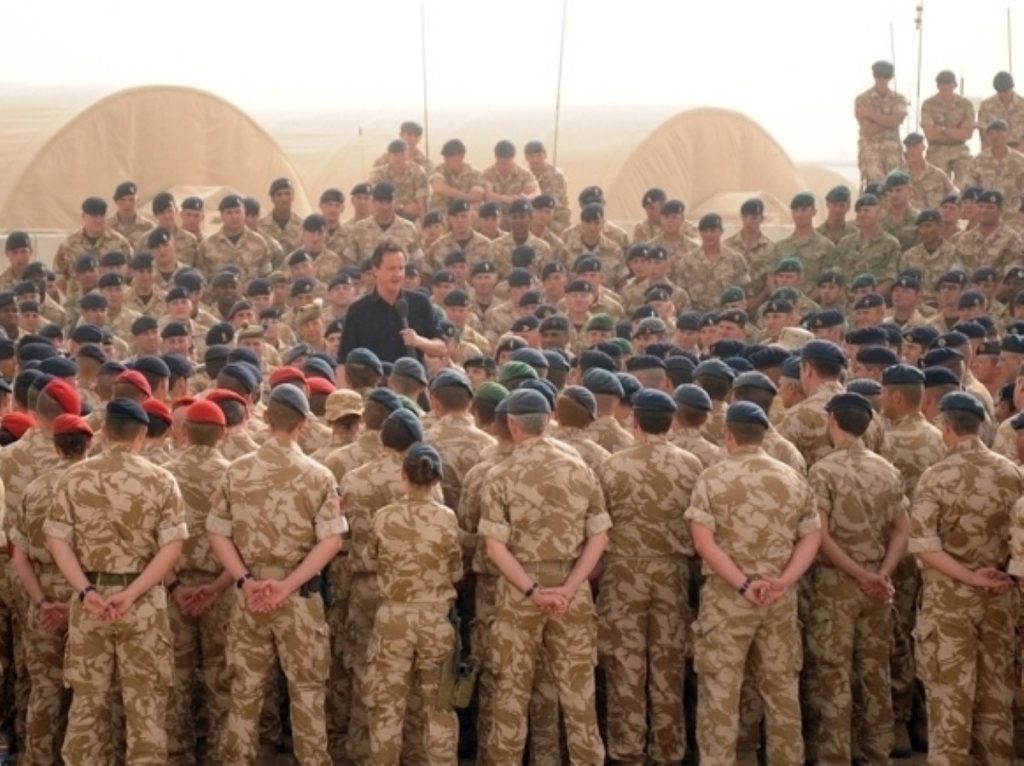Defence review: No place to hide for Britain’s military
The Army, Royal Navy and Royal Air Force all face major reductions in their capabilities as a result of the strategic defence and security review (SDSR) outlined today.
Britain’s armed forces are to lose 17,000 personnel as a result of the SDSR while 25,000 civilian staff at the Ministry of Defence will lose their jobs.
The Royal Navy will keep its two new aircraft carriers but loses HMS Ark Royal, its current flagship, almost immediately. Four frigates are being cut, while a landing and command ship will be mothballed.
The Royal Air Force will suffer a range of losses, with the Harrier jump jet the biggest casualty. The joint strike fighter aircraft to be used on the new aircraft carriers will suffer a cut in overall numbers – just 12 will be operational on a carrier at any one time.
The Nimrod MRA4 maritime patrol aircraft programme has been scrapped, Hercules tactical transport aircraft are to be withdrawn from 2020 and the Tornado jets are to be gradually withdrawn in favour of the Typhoon alternative.
Army capabilities are being focused on fighting insurgent-style wars like the ongoing struggle in Afghanistan. Heavy artillery is being cut by 35%, while its main battle tanks, the Challenger 2, will be reduced by 40%.
Sketch: Defending the indefensible
In another major shift Britain is to end its presence in Germany, where around 20,000 personnel are currently based. These will be withdrawn by 2020.
Presenting the defence review to the Commons, David Cameron revealed the MoD would see cuts of £4.7 billion over the next five years. Officials confirmed the MoD faced a departmental budget cut of just eight per cent.
Batting away accusations that the review was driven by short-termism, Mr Cameron said: “This is not simply a cost-saving exercise to get to grips with the biggest budget deficit in post-war history.
“It is about taking the right decisions to protect our national security in the years ahead.”
The coalition government has decided to stick with the Trident nuclear deterrent but has delayed a final decision until after the 2015 general election.
A cost-saving review has concluded that the minimum credible deterrent can be maintained with a reduction in the number of Britain’s warheads from 160 to 120, a dramatic move which will boost the UK’s moral standing at non-proliferation talks.
The move will be welcomed by the Liberal Democrats, who had campaigned against a like-for-like replacement for Trident before the general election.
Lib Dems claim victory in Trident battle
“Extending the life of the existing Trident fleet will not only save money in the short term; it will allow the opportunity to keep nuclear policy under review, to explore the possibilities of co-operation with the French, and even to consider other alternatives to like for like replacement of Trident,” former leader Sir Menzies Campbell said.
“Liberal Democrats would be well satisfied with this outcome.”
The SDSR places significant weight on security issues going beyond the armed forces. Yesterday’s national security strategy revealed fighting international terrorism has been joined by cybersecurity among the top threats facing the country.
Officials today confirmed funding for the intelligence services and counter-terrorist policing would be neutral overall.
A National Crime Agency will be set up to fight organised crime, funding for border police has received a boost and a new national cyber security programme will receive £650 million.
Conflict prevention will receive much greater emphasis, with international development spending diverted towards vulnerable countries. Officials said there was a risk this would have consequences for more traditional partners like Bangladesh.
“This review sets out a step change in the way we protect this country’s security interests,” Mr Cameron told MPs.
“From a Ministry of Defence that is too big, too inefficient and too overspent to a department that is smaller, smarter and more responsible in its spending.
“From a strategy over-reliant on military intervention to a higher priority for conflict prevention.
“From concentrating on conventional threats to a new focus on unconventional threats.
“And from armed forces that are overstretched, under-equipped and deployed too often without appropriate planning to the most professional and most flexible modern forces in the world, fully equipped for the challenges of the future.”





-01.png)